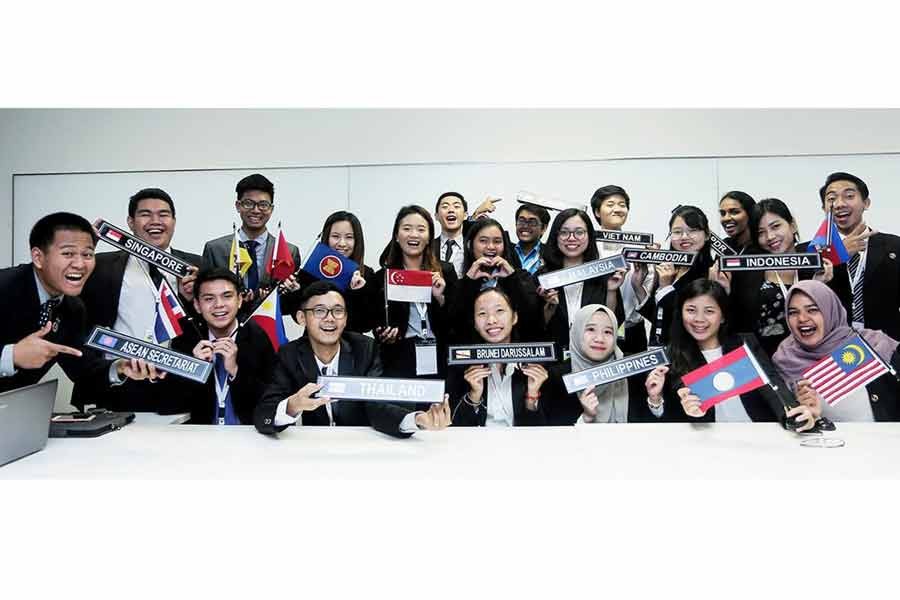Last month, the world marked the first anniversary since the World Health Organization (WHO) declared the Covid-19 virus as a pandemic. Throughout the year, we witnessed how a virus can bring forth a global health crisis, followed by a chain of economic contractions whilst widely exposing societal vulnerabilities, such as the lack of universal social protection.
As a result, many of the Sustainable Development Goals (SDGs) advancements at the national, regional, and global level were abruptly halted as countries reallocated their resources to ensure the full success of the measures aimed at addressing the health, economic, and societal impacts of the pandemic. Government measures intended to limit the spread of the virus, through travel restrictions and lockdown measures, have unexpectedly led to short-lived improvements in the environment, such as better air quality, lower greenhouse gas emissions, and reduced noise pollution.
The situation has not been much different in South-East Asia. The recently launched 2021 Theme Study by The Economic and Social Commission for Asia and the Pacific (ESCAP) ESCAP, Beyond the pandemic: Building back better from crises in Asia and the Pacific, testifies that moderate to strong levels of preparedness towards Covid-19, measured through the Human Development Index and the extent of health services and digital connectivity, were mostly observed throughout the South-East Asian countries.
However, stark red flags were raised regarding the poor quality of health and social protection provisions in at least half of the South-East Asian countries, particularly towards vulnerable groups, such as informal, women, and migrant workers. The report further explains that these workers are employed in economic sectors linked with retail, hospitality, transport, and the global value chain - that have faced significant downturns as a result of the government measures restricting the natural flow of goods, investments, services, and people.
The Theme Study, launched on 20 April 2021, identified the fault lines in the region's societies and economies and further exposed the stark inequalities in the communities, such as the fragility of health and social protection, the weakness in internet coverage and digital capacity and the limitations of trade and transportation links.
A South-East Asia breakout session held in tandem with the launch deepened this discussion in a sub-regional context, providing a virtual space for distinguished speakers from different areas to discuss issues on the Covid-19 recovery in the region. While the discussion touched upon different topics scoping from the need to address the now-evident inequalities in accessing governmental support to having in place a robust monitoring mechanism to track the implementation and impacts of regional Covid-19 recovery measures, speakers echoed one another on the crucial role of strong regional cooperation in a sustained recovery within and across South-East Asian countries.
Dr. Mely Caballero Anthony, Professor of International Relations at Nanyang Technological University, highlighted that we should strengthen the collective and common regional response to implement the existing Covid-19 recovery initiatives and frameworks available at the national and regional level. Dr. Teh Lip Li, Senior Fellow of the ASEAN Studies Centre at Chulalongkorn University, underlined that we need to improve coordination and collaboration between existing and newly formed ASEAN institutions to promote awareness of the SDGs and catalyze a post-pandemic recovery. As challenges in addressing and recovering from the pandemic are still unfolding, Dr. Aladdin Rillo, Senior Economic Advisor of the Economic Research Institute for ASEAN and East Asia, emphasized the need for systematic information sharing and development of new initiatives to sustain recovery. He noted that regional trade agreements like the Regional Comprehensive Economic Partnership (RCEP) Agreement, could re-ignite the SDG progress.
Overall, while being a topic extensively discussed even before the pandemic, regional cooperation seems to be the most powerful tool we have in fighting the multidimensional impacts of Covid-19.
Fortunately, South-East Asia has a strongly committed association of countries - the Association of Southeast Asian Nations (ASEAN).
Navigating the region towards the post-Covid-19 era, ASEAN could strengthen its role as the central regional platform for cross-sectoral discussions and concerted actions. It could also expand on the issues it is concerned with in collaboration with ESCAP and other entities in the United Nations system. If done so correctly, South-East Asia could resume the previously enjoyed everyday life we knew before the pandemic and be back on track with the advances of the SDGs. Perhaps more importantly, we could also address the widely-spread cross-border, cross-sectoral systematic vulnerabilities that the virus has exposed and build a better and more sustainable South-East Asia where no one is left behind.
The authors are with United Nations Economic and Social Commission for Asia and the Pacific (ESCAP).
[The piece is excerpted from www.unescap.org/blog]


